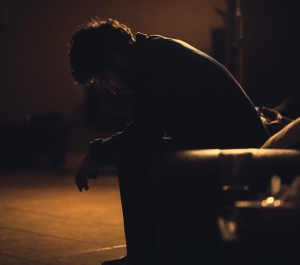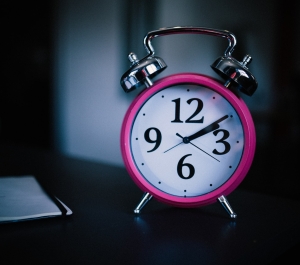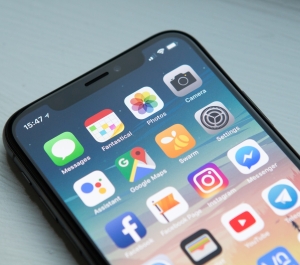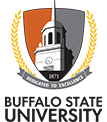There is an endless supply of information and opinions about mental health in this world - not all of it helpful. This page offers trusted resources and self-assessments about mental health. You can get more information from the Counseling Center by calling 716-878-4436 or visiting our Wellness Hub at https://connectwellnesshub.com/.

Anxiety
Normal life includes some anxiety and fear. In many cases, anxiety or fear could motivate us to solve problems or prepare for upcoming tasks. However, when these anxiety and fears linger, these feelings can be overwhelming and may interfere with your academic goals.
Excessive worrying and physical tension are two key components of anxiety. Worrying about the future, making a mistake, receiving a negative evaluation, failing a test, and relationship break-up are among the most common themes among college students. In many cases learning how to control your worries alleviates anxiety and depression.
For more information about how to manage anxiety visit the Wellness Hub anxiety page, the Anxiety and Depression Association of America, or contact the Counseling Center at (716) 878-4436.

Depression
Depression is comprised of multiple symptoms including depressed mood, problems with concentration, lack of sleep or increased sleep, fatigue or loss of energy, loss of interest or pleasure in almost all activities, difficulty making decisions, increased or decreased appetite, psychomotor agitation or retardation, feelings of worthlessness and guilt, suicidal thoughts with or without plans and behaviors.
If you are wondering whether you or someone you care about may be suffering from depression, call the Counseling Center for a confidential consultation at 716-878-4436. You can also see these guides on how to differentiate normal sadness from clinical depression, how other students have dealt with depression, and suicidality in college.
You may also contact the 24/7 Bengal Support Line by calling 833-823-0260 or the National Suicide and Crisis Lifeline by calling or texting 988.

Eating Concerns
The transition to college presents challenges as students adjust to living away from family, negotiating new relationships and coping with academic pressures. Students assume more responsibility for eating habits, including making choices in the dining hall and dorm and deciding when to eat in the middle of a busy schedule.
The transitions of college and the increased autonomy in all of these areas can be very demanding. Many college-aged students don’t meet the criteria for an eating disorder but are preoccupied with losing weight and dissatisfied with their bodies. Every day we make choices concerning food. Sometimes those choices can help our health and sometimes they can hurt it. Articles and videos about developing and maintaining a healthy relationship with your body can be found here. The Counseling Center is available to discuss resources on how to eat healthy at Buffalo State University or how to help a friend or yourself with an eating disorder.
Call the Counseling Center for a confidential consultation at 716-878-4436.

Healthy Relationships
What makes a relationship healthy? Whether it’s between friends or intimate partners, there are certain characteristics that need to be in place. This includes the presence of mutual respect, a willingness to listen, an ability to share one’s thoughts and ideas and feelings of being appreciated. The individuals in the relationship feel supported and cared for by the other person.
If you are concerned about your relationship or a friend, do not hesitate to consult with a counselor at the Counseling Center. On our website, under the Violence on Campus heading, there is excellent additional information on recognizing intimate partner violence, stalking and what to do. Remember, love and friendship does not hurt or create fear.
Call the Counseling Center for a confidential consultation at 716-878-4436. Visit here for articles and videos about developing and maintaining healthy relationships with friends, intimate partners, roommates, and more.

Sleep Health
Consistently getting at least 8 hours of high quality sleep has been shown to improve overall health, mental health, athletic and academic performance. Experts are beginning to believe that sleep health is a key to a high level of human functioning. If you are not getting enough sleep on a regular basis you are not alone. Studies show that as many as 70-80% of the population experience difficulties with sleep at least occasionally.
In a recent survey, 88% of Buffalo State student’s indicated that they experienced at least some level of sleepiness during daytime activities. Perhaps the most important reason for college students to manage their sleep is the very strong relationship between sleep health and academic success.
The Counseling Center offers free and confidential individual sleep consultations and group workshops on how to get a good night’s sleep. Call the center (878-4436) for further details or to request an appointment. Articles and videos about sleep for college students can be found here.

Sexual Orientation and Gender Identity
Sexual orientation refers to an enduring pattern of emotional, romantic, and/or sexual attractions to men, women, or both. Gender identity refers to a person’s innermost concept of self as male, female, or something else and can be the same or different from the sex they were assigned at birth. Research over many decades indicates that sexual orientation, for many individuals, falls along a range or continuum with opposite-sex attraction at one end of the spectrum and same-sex attraction at the other end. Similarly, for many people gender identity is not a simple binary. College is often a time of exploration and development of many aspects of a student's identity including sexuality and gender. Social stigma may make it difficult for individuals who are exploring and/or questioning their sexual orientation and gender identity to reach out for support. The Buffalo State University Counseling Center offers a safe, supportive environment for all individuals to discuss and explore issues related to sexuality and gender. In addition to individual counseling, the Counseling Center also offers a support group, Inside Out, for LGBT and questioning students.
Call the Counseling Center for a confidential consultation at 716-878-4436.
Helpful articles can be found at our Wellness Hub and a great resource for educating yourself and others about the nuances of sexuality and gender identity, attraction, expression, and biology can be found here.

ULifeline
ULifeline is an anonymous, confidential, online resource center, where college students can be comfortable searching for the information they need and want regarding emotional health.
ULifeline is a project of the Jed Foundation, a leading organization working to protect the emotional health of America's college students, and was developed with input from leading experts in mental health and higher education.

24/7 Support Line and Wellness Hub
All Buffalo State University students have 24/7 access to speak with a counselor for support by calling 833-823-0260.
- Feelings of anxiety/panic, depression, or stress
- Relationship problems or worries
- Loneliness and isolation
- Grief and loss
- Help with coping skills or linkage to resources
Call 833-823-0260 to speak to a counselor for immediate support.
The Wellness Hub includes articles, videos, and streaming materials on mental health, academics, healthy relationships, money, and more. Check it out now at https://connectwellnesshub.com/

Alcohol, Cannabis, and Other Substance Use
Navigating alcohol, cannabis/marijuana, or other substance use is a common concern for many college students. In addition to Counseling Center supports, Dr. Ashley Maracle, Director of Care and Support, offers the following free and confidential tool. The following surveys can be done on your own before you meet with her or after, whichever works for you. You will be assigned a random ID number, so your survey data can be stored separately from any personally identifying data. If you want to meet with Dr. Maracle to review your results and get personalized feedback comparing your usage with other college students, bring your user ID number, otherwise there is no way for anyone else to know which survey is yours.
If you want to get individualized feedback on your relationship with alcohol, you can complete a survey here: https://echeckup.sdsu.edu/usa/alc/coll/buffalostate/#!/
If you would like to get individualized feedback on your relationship with cannabis, you can complete a survey here: https://echeckup.sdsu.edu/usa/mj/coll/buffalostate/#!/

